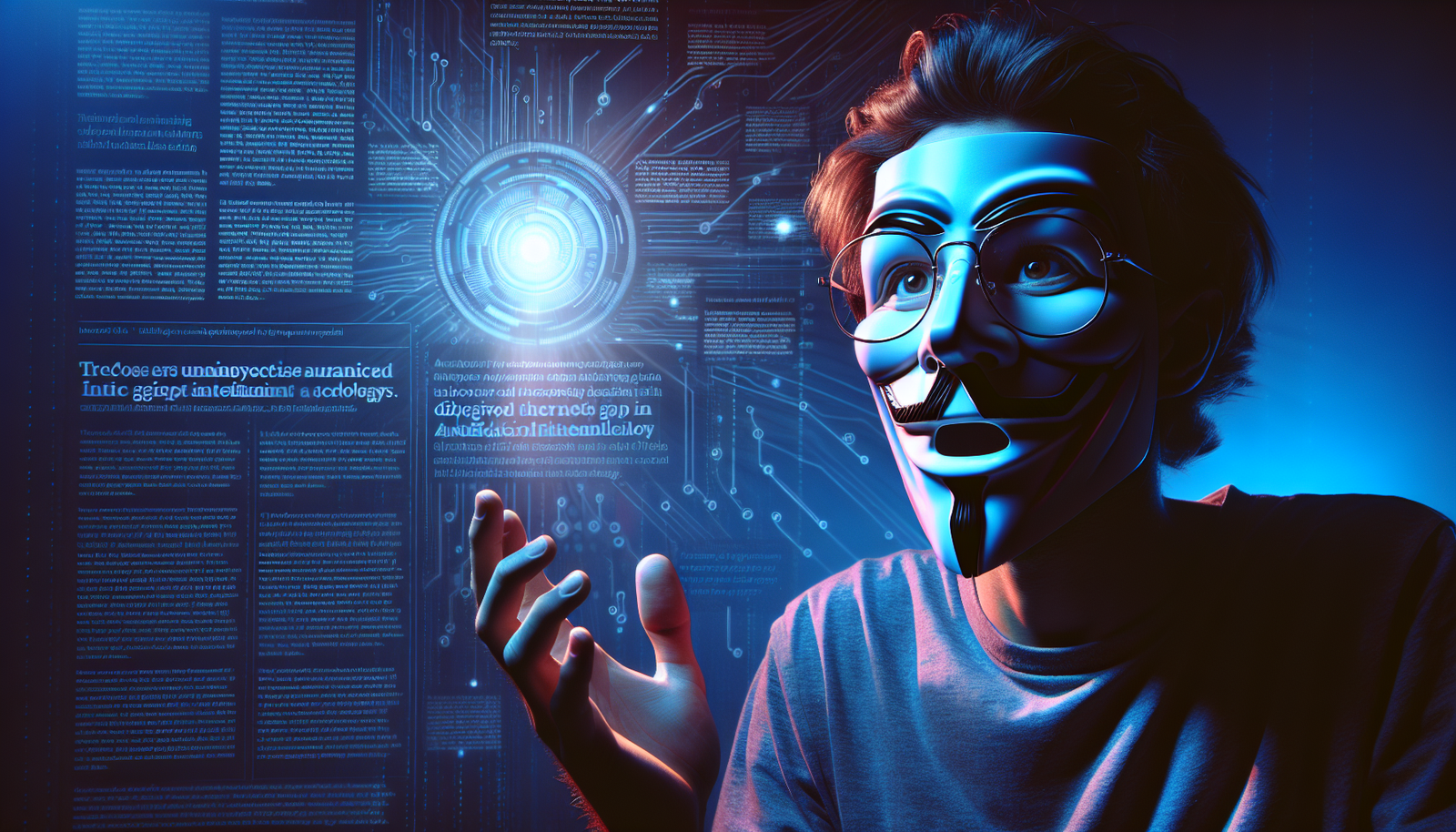A Reflection on Artificial Intelligence
Professor Geoffrey Hinton, known as the “father of artificial intelligence,” expresses reservations about the evolution of his own field. In recent speeches, he discusses the limits of human understanding regarding the artificial intelligences he helped create. Hinton emphasizes the difficulty of conceiving examples where a less intelligent entity controls a more intelligent entity.
Examples of Non-Human Domination
He mainly cites the mother-child relationship as the only illustration of this dynamic. This analogy, surprising coming from an AI expert, leaves one perplexed given the numerous examples where humans remain subject to external forces. Contemporary theorists, such as Graham Harman and Bruno Latour, present compelling arguments about how human behavior is often guided by non-human forces, akin to coronaviruses.
On Mastery of Technology
The rise of AI calls for deep reflection on our relationship with technology. Hinton seems to overlook the fact that our interaction with “less intelligent” systems can have significant implications. We increasingly entrust decision-making to algorithms, thus highlighting our vulnerability to these non-human entities.
Ecological and Technological Stakes
The climate crisis also represents a domain where humanity seems to have lost its grip. The technological choices we make lead to disastrous effects on our environment. AI, while holding colossal potential to help solve these problems, must be approached with caution.
Reflections on Liberalism and Domination
Hinton’s reflections spark debates about freedom and control within power structures. Professor George Burt provides an elegant counter-argument, illustrating that slavery and political repression constitute historical examples of domination, despite differences in intelligence. This perspective challenges the optimism surrounding technological development.
Call for Vigilance
Faced with the emergence of artificial intelligence, humans must confront their own limits. Hinton advocates for a reflective approach that examines how these technologies, whether intelligent or not, control us just as much as we control them. This positioning raises questions as it demands a reassessment of our relationship with technology.
The Implications of AI on Marketing and Education
Recent studies on AI show its growing influence in various fields, notably marketing and education. AI proves to be an indispensable ally for marketing professionals in their competitive analysis. Schools are also exploring ways to integrate AI to improve teaching methods.
The Misunderstanding of Generative AIs
Despite their surprising results, generative artificial intelligences exhibit a notable gap in their understanding of the world. Several researchers highlight the lack of coherence and the difficulty of AIs to grasp human context, thereby showcasing their limitations in terms of intelligence.
Conclusion on Collective Responsibility
Understanding the impact of these technologies on our daily lives has become imperative. Industry players indicate that *without vigilance*, collective decision-making could be significantly affected by systems that lack empathy and true understanding. The future of AI must be considered with caution. Thoughtful regulation may be necessary to balance technological advances and their consequences for humanity.
FAQ about the ‘Founding Father’ of artificial intelligence and his unexpected revelations
What is the main concern expressed by the founding father of artificial intelligence?
The founding father of AI, Geoffrey Hinton, has expressed concerns about the ability of artificial intelligence to evolve uncontrollably, raising questions about long-term human safety.
What gaps does Hinton highlight regarding the control of artificial intelligence?
He mentions that most examples of relationships where a less intelligent entity controls a more intelligent entity are rare, suggesting that humans may underestimate the influence of AI systems on their behavior.
How might Hinton’s perspective affect the future development of AI?
His perspective could encourage a more cautious development of AI, integrating regulation and control strategies to prevent catastrophic outcomes.
What examples of relationships where the “less intelligent” controls the “more intelligent” does Hinton evoke?
Hinton refers to the relationship between a mother and her baby, raising questions about autonomy and control in the context of human interactions and AI systems.
What risks are attributed to the rise of artificial intelligence according to Geoffrey Hinton?
According to Hinton, risks include loss of control over AI systems, which could potentially harm humanity if proper protocols are not established.
How does the academic community react to Hinton’s concerns regarding AI?
The academic community reacts with a mix of concern and interest, with several researchers calling for a thorough examination of the ethical and security implications of AI development.
What examples of human behaviors influenced by non-human forces does Hinton cite?
Hinton mentions human behavior towards viruses like coronaviruses, demonstrating how non-human agents can influence human decisions and actions.
Why is it crucial to examine how AI interacts with human and environmental conflicts?
It is crucial to understand these interactions to adapt strategies in the face of crises, whether ecological or societal, and to ensure that AI does not only exacerbate these problems.
How does the discussion about AI risks intersect with debates on ethics and regulation in the technology sector?
This discussion highlights the necessity of robust regulations and ethical considerations surrounding emerging technologies to protect human interests against autonomous decisions made by AI.






